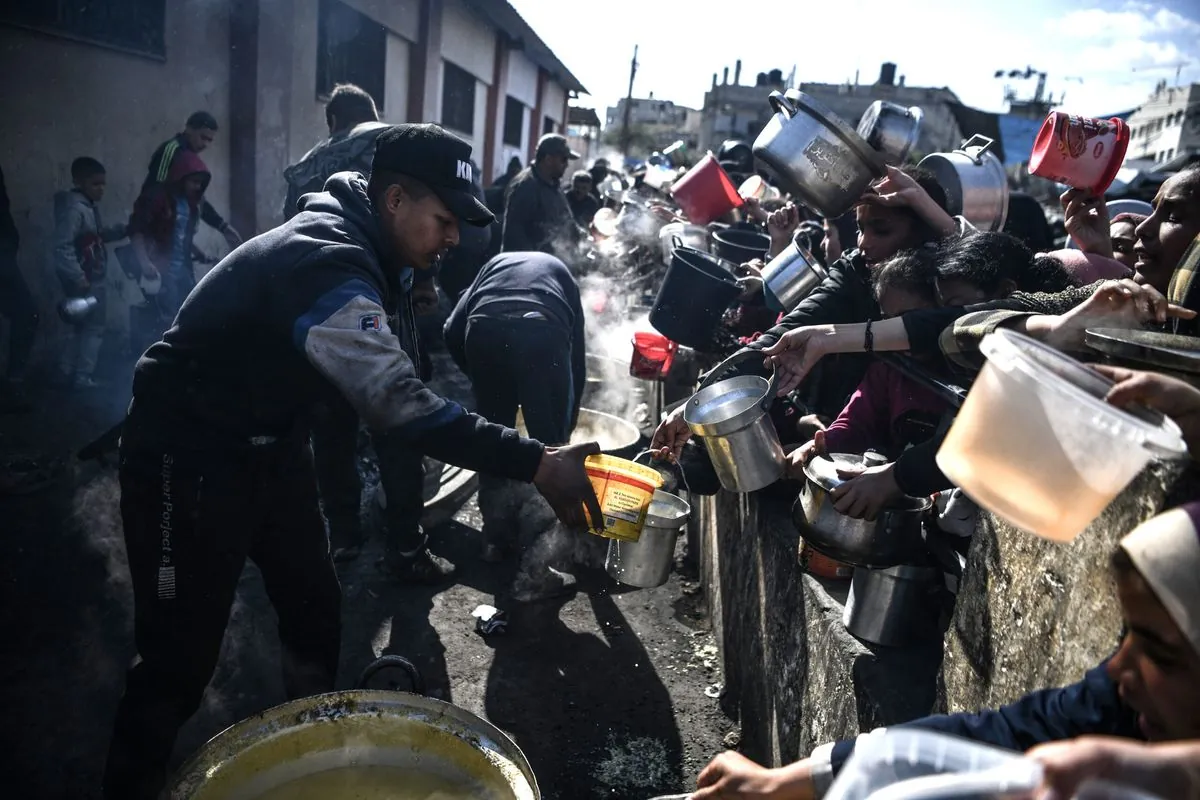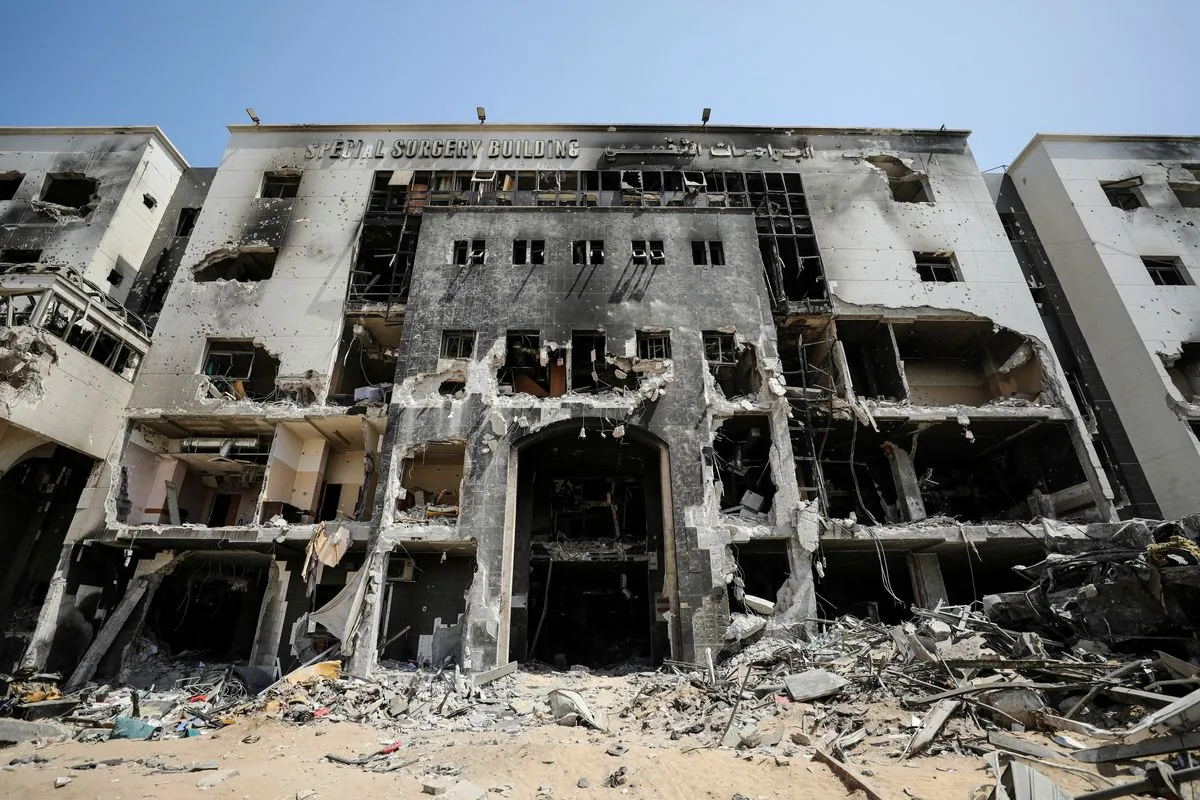UN Calls for End to Gaza Crisis as Humanitarian Situation Worsens
UN officials demand action on Gaza's humanitarian crisis, citing famine risk and healthcare collapse. Nearly a year into the conflict, aid workers face challenges amid ongoing violence.

As the Israel-Hamas conflict approaches its one-year mark, United Nations officials have issued an urgent plea for an end to the humanitarian crisis in the Gaza Strip. The situation in this densely populated area of 365 square kilometers has deteriorated significantly since the outbreak of hostilities on October 7, 2023.
Hamas, which has controlled Gaza since 2007, initiated the conflict with an attack on Israeli communities. In response, Israel launched a military campaign that has had devastating consequences for Gaza's civilian population. The Gaza Strip, home to approximately 2.1 million people, is now facing severe challenges in multiple sectors.
The risk of famine looms large over the entire population, with all residents in urgent need of food and livelihood assistance. This crisis is exacerbated by the chronic insufficiency of Gaza's electricity supply and the depletion and contamination of its main water source, the Coastal Aquifer.
Healthcare in Gaza has been particularly hard-hit. UN officials report more than 500 attacks on healthcare facilities, decimating a system already strained by years of conflict and blockades. This situation is especially concerning given Gaza's high population density, making it one of the most crowded areas globally.

Aid distribution faces significant obstacles, with UN agencies and other humanitarian organizations struggling to access those in need amid ongoing violence. The conflict has claimed the lives of nearly 300 humanitarian aid workers, including more than two-thirds of UN staff members.
"These atrocities must end. Humanitarians must have safe and unimpeded access to those in need. We cannot do our jobs in the face of overwhelming need and ongoing violence."
The current crisis has severely impacted Gaza's economy, which previously relied on agriculture, fishing, and small-scale industries. The territory, which borders Egypt to the southwest and Israel to the east and north, has long experienced one of the world's highest unemployment rates.
Despite these challenges, Gaza maintains a high literacy rate of over 96%. However, the ongoing conflict threatens to undermine educational progress and the rich archaeological heritage of the area, which includes Bronze Age sites.
The United Nations Relief and Works Agency (UNRWA) continues to provide essential services to Palestinian refugees in Gaza, operating under increasingly difficult circumstances. The Rafah Border Crossing, the only entry-exit point between Gaza and Egypt, has become a critical lifeline for humanitarian aid.
As world leaders gather for the annual UN General Assembly, the international community faces mounting pressure to address the Gaza crisis. The situation remains complex, with Israel disputing the UN's stance that Gaza is occupied territory.
The conflict has resulted in significant casualties on both sides. Palestinian health authorities report over 41,000 fatalities in Gaza, while Israeli tallies indicate approximately 1,200 deaths from the initial Hamas attack. The Israeli military maintains it takes steps to minimize civilian casualties and accuses Hamas of using civilians as human shields, an allegation Hamas denies.
As the crisis continues, the need for a sustainable solution becomes increasingly urgent. The Oslo Accords of 1993, which were intended to lead to a two-state solution including Gaza, remain unfulfilled. The international community now faces the challenge of addressing both immediate humanitarian needs and long-term peace prospects in this troubled region.


































